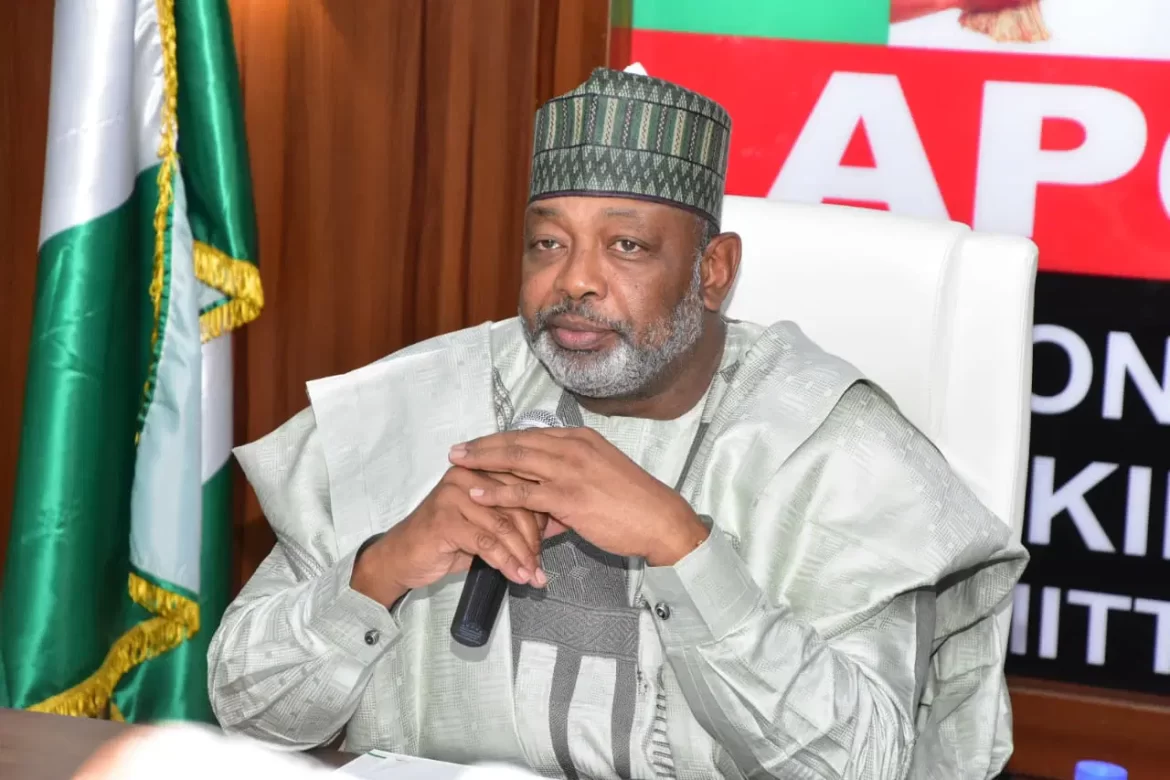674
By Lizzy Chirkpi
Nigeria’s renewed commitment to agricultural transformation gained momentum on Monday as key stakeholders from government, development partners, and civil society gathered in Abuja for the Community of Practice Meeting and the National Comprehensive Africa Agriculture Development Programme (CAADP) Kampala Declaration Summit.
Declaring the summit open, Minister of Agriculture and Food Security, Abubakar Kyari, reaffirmed Nigeria’s readiness to align its agricultural priorities with the African Union’s Kampala Declaration (2026–2036). A decade-long framework designed to strengthen agrifood systems and promote food security across the continent.
Kyari explained that the Kampala Declaration builds on previous AU commitments, including the Malabo Declaration (2014–2025) and the Maputo Commitments (2003–2013), offering a renewed roadmap for Africa’s pursuit of resilient, inclusive, and sustainable food systems.
“We must move beyond business-as-usual approaches and embrace bold reforms that make our food systems more productive and equitable,” he said.
The Minister noted that Nigeria had recorded significant progress under the Malabo Declaration, as reflected in the African Union’s Biennial Review of agricultural performance. To consolidate these gains, he said, the government has established an Agricultural Sector Working Group to harmonise policies, promote accountability, and strengthen collaboration among stakeholders.
Kyari further disclosed that the Federal Government had procured 2,000 tractors and implements to drive mechanisation and launched Special Agro-Industrial Processing Zones (SAPZs) in Kaduna, Cross River, and Ogun States, with additional zones planned. Valued at $538.05 million, the SAPZ initiative is projected to attract up to $1 billion in investments by 2027.
He also unveiled the upcoming Nigeria Postharvest Systems Transformation Program (NiPHaST), designed to address the country’s N3.5 trillion annual postharvest losses. The programme, he said, will raise farmers’ incomes, generate employment for youth and women, and advance national food sovereignty.
“The synergy between the Federal and State Governments is indispensable for achieving sustainable food security. Through effective coordination and shared responsibilities, we can streamline policies, mobilise resources, and implement impactful interventions,” Kyari emphasised.
In a goodwill message, Suwaiba Muhammad Dankabo, Deputy Country Director of ActionAid Nigeria, applauded the partnership between the ministry, GIZ, and other stakeholders in hosting the summit. She said the Kampala Declaration presents Africa with a renewed opportunity to realign agricultural priorities and address persistent challenges such as low productivity, climate shocks, and gender inequality.
Dankabo cited findings from ActionAid’s Non-State Actors Biennial Review Value Addition Toolkit (NSAs VABKIT), which revealed significant gaps in women’s access to agricultural support.
“Access to government and bank credit remains below 23%, agricultural insurance at just 4.77%, and access to processing facilities at 18%,” she noted, urging increased investments in women-led agribusinesses, extension services, and postharvest infrastructure.
She also highlighted the launch of ActionAid’s Pots and Pans Campaign on October 1, 2025, aimed at drawing attention to hunger and poverty among Nigeria’s 133 million citizens living in multidimensional poverty. The campaign encourages Nigerians to symbolically protest hunger by banging empty pots and pans in public spaces, amplified by hashtags such as #MyHungerStory, #PotsAndPansAction, and #EndHungerNow.
Delivering his remarks, Hussein Gadain, FAO Representative in Nigeria and to ECOWAS, commended the government for its leadership in advancing agricultural transformation through CAADP. He reaffirmed FAO’s commitment to providing technical assistance and policy support to align Nigeria’s agricultural vision with continental goals.
“At the regional level, FAO supported the AU in developing the CAADP Strategy and Action Plan, and continues to help member states align national priorities with the continental framework,” Gadain said.
He added that FAO had supported Nigeria’s 2023 and 2025 Biennial Review processes, the National Agrifood Systems Investment Plan (NASIP), and the 50×2030 Initiative, a collaboration with the World Bank and National Bureau of Statistics to close agricultural data gaps.
Looking ahead, Gadain pledged FAO’s support for developing a 10-year roadmap for implementing the Kampala Declaration in Nigeria, ensuring inclusivity, climate resilience, and community ownership.
“As we move forward, let us build a future where agriculture is not only a source of food and income, but a driver of resilience, equity, and prosperity,” he said.



